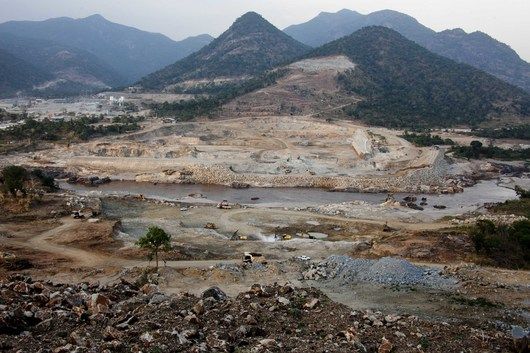Tensions between Ethiopia and Egypt over dam
Ethiopia and Egypt are holding high-level talks amid the ongoing crisis over water-sharing, arising from Ethiopia's construction of the $4.2bn Grand Renaissance Dam in the Benishangul-Gumuz region, about 40 km east of the Sudan border.
Tensions have been rising between Egypt and Ethiopia over the latter's use of river Nile water resources to power the 6,000-MW dam which is designed to generate electricity for Ethiopia as well as for export to neighbouring countries.
In May Ethiopia began diverting the Blue Nile for the construction of the massive dam, the impact of which is feared downstream in Egypt, which depends on the Nile for 95 per cent of its water.
A series of diplomatic gaffes and heavy-handed exchanges between the two countries was followed in mid-June by Ethiopia's ratification of a controversial treaty that ensured its access to Nile water resources, allowing upstream countries to implement irrigation and hydropower projects without seeking Egypt's approval first.
The new treaty replaces a colonial-era agreement that granted the majority of water rights to Egypt and Sudan. Since its ratification, foreign ministers from Egypt and Ethiopia convened in Addis Ababa and pledged to continue to engage in dialogue. Describing relations between both countries as "brotherly", they released a joint statement that read: "We have two options, either to swim or sink together. I think Ethiopia chooses, and so does Egypt, to swim together." Both nations have agreed to commission further studies to ascertain the safety of the dam as well as its environmental impact on downstream countries.
The dam is currently 20 per cent built, and Ethiopia says it will take five to six years to fill the 74 billion cubic-metre resevoir in what will become one of Africa's biggest hydropower facilities.
Ethiopia is financing the project on its own because the World Bank and other multilateral lenders do not look favourably on international waterway projects that lack approval from each shoreline state. Ethiopia has reportedly requested its population to buy bonds to help finance the giant scheme.














